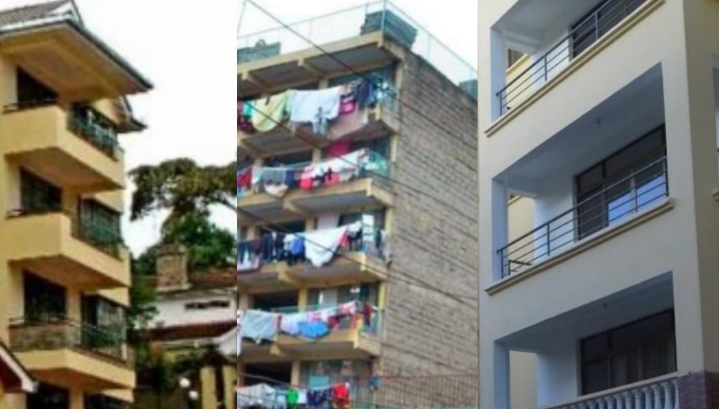Editor’s note: Robertson Mwirigi writes on life in Nairobi’s middle class apartments.
I have lived in various residential estates across Kenya, both low, and high-end. In both places, I have observed behaviours of different calibres of people.
From my observations, I have come to conclude that Nairobi’s middle class apartment residential areas harbour people with the most uncouth manners.
It also goes without saying the said areas might not be the best areas to bring up a family after all.
Let me narrate my experiences. My first time searching for a house was in Mombasa after graduating from college.
I was looking for a one-room house, and I was subjected to thorough vetting. The landlady, a gracious lady by all means, cheekily asked me if I would consider dating a married woman.
READ ALSO: Mom Overjoyed After Helping Son Overcome Mild Autism
I told her a straight “NO”. She also asked me if I played loud music in the house. I told her I did not even own a music system. She further asked me if I drank alcohol, and I told her no.
To cut a long story short, I had great neighbours.
My next-door neighbour rented a double room where he lived with his wife and two beautiful daughters, aged six and eight.
He was a driver with a passenger bus company who took his family to church every Sunday.
My conduct helped me earn the trust and respect of the family.
One day I caught the girls mimicking my serious demeanor and walking style on the verandah as their parents watched.
We all smiled the moment the girls saw me.
The incident would pave way to us becoming freer with one another and have us start a Bible study.
Tuesday’s Bible study had grown considerably by the time I moved out.
What puzzled me was the moral bearing of my neighbours and their families. We all led simple lives and were respectable and gracious towards one another.
Another thing I noted was that my neighbours’ children communicated intently and were quite respectful towards adults.
Interestingly, this situation was replicated when I moved to Kakamega. Still, I was subjected to thorough vetting from the landlord. I had very cheerful and kind-hearted neighbours.
Here, things got better, and my Luhya neighbours not only made the most delicious meals but also shared the sweetest gossip.
They even organised a great farewell party when I told them I was moving to Nairobi.
With a better job and income and now being married, I got a house at Umoja 1 in a gated community.
This was quite an upgrade. My neighbours were Adventists and very disciplined.
They were kind, and you could not find them meddling in people’s affairs. And when they did, their position on matters would mainly be informed by scripture.
The children on the estate were well-behaved and balanced. They spoke English when their parents demanded it, but spoke Sheng and Swahili amongst themselves.
I stayed in the gated community for three years, and I must say it was pure bliss.
Having somehow built our financial muscle, my wife and I moved to an apartment in a middle-class neighbourhood.
At first, I noticed the residents were calm and warm. They suggested prayers in the estate’s WhatsApp group.
I would later learn that most of my humble neighbours had worked their way up. Talk of people born into humble families and who had worked their way up.
Most of them had school-going children who spoke refined English, something the parents truly relished.
What’s more, the neighbours, especially women, communicated in English throughout.
They would address everyone in English, starting from the bodaboda delivery guy, the vegetable vendors, and the plumber.
They would occasionally speak in Swahili, but in between, they would say, “Mmmh, I mean,…” to demonstrate they were more fluent in English.
Some even persisted in saying that they must be addressed in English in the estate WhatsApp group.
However, the situation on the estate changed suddenly when a new breed of young people moved into the estate.
The majority of this group were mainly Gen Z, or millennials, between the ages of 27 and 31. They were loud; insulting fellow neighbours, gatemen, and everyone.
They would issue threats in English, and a number drove tuned Subarus.
I understood a number of the miscreants had rich parents who had dumped them on the estate away from their serene homes in Karen and Muthaiga.
In a span of one year, the situation got worse, and some would insult the guards for no reason. Some messed with the lifts with puke.
Occasionally, they smoked marijuana in the lifts and on their apartments’ balconies.
They would blast loud music that was a nuisance to their neighbours, such that it became impossible to work from home.
They also held loud parties in the dead of the night as neighbours complained to the management.
The children of this lot were also not well-behaved, with children as young as seven years old uttering abusive words.
As the situation worsened, most of the good families, including some homeowners, started moving out of the estate.
I would later realise that that was the trend in most of the city’s middle-class apartments.
I set out to confirm the facts, and I was startled when I realised that it was indeed the truth.
The apartments around Kilimani were worse. Here, drug dealers reigned with abandon. There were also cases of shootings as the money launderers and the drug dealers fell out.
READ ALSO: How to Live a Stress free Life with Low Income – 17 Proven Strategies
This contrasted in a big way with the tranquilly in the comparatively cheaper neighbourhoods in Nairobi’s eastlands.
What’s your experience of residing in Nairobi’s middle-class apartments?
The opinions expressed in this article are solely those of the writer and do not necessarily reflect the position of GOTTA.news. We welcome writers to give their views on various social issues. Send your opinion to info@gotta.news.
























